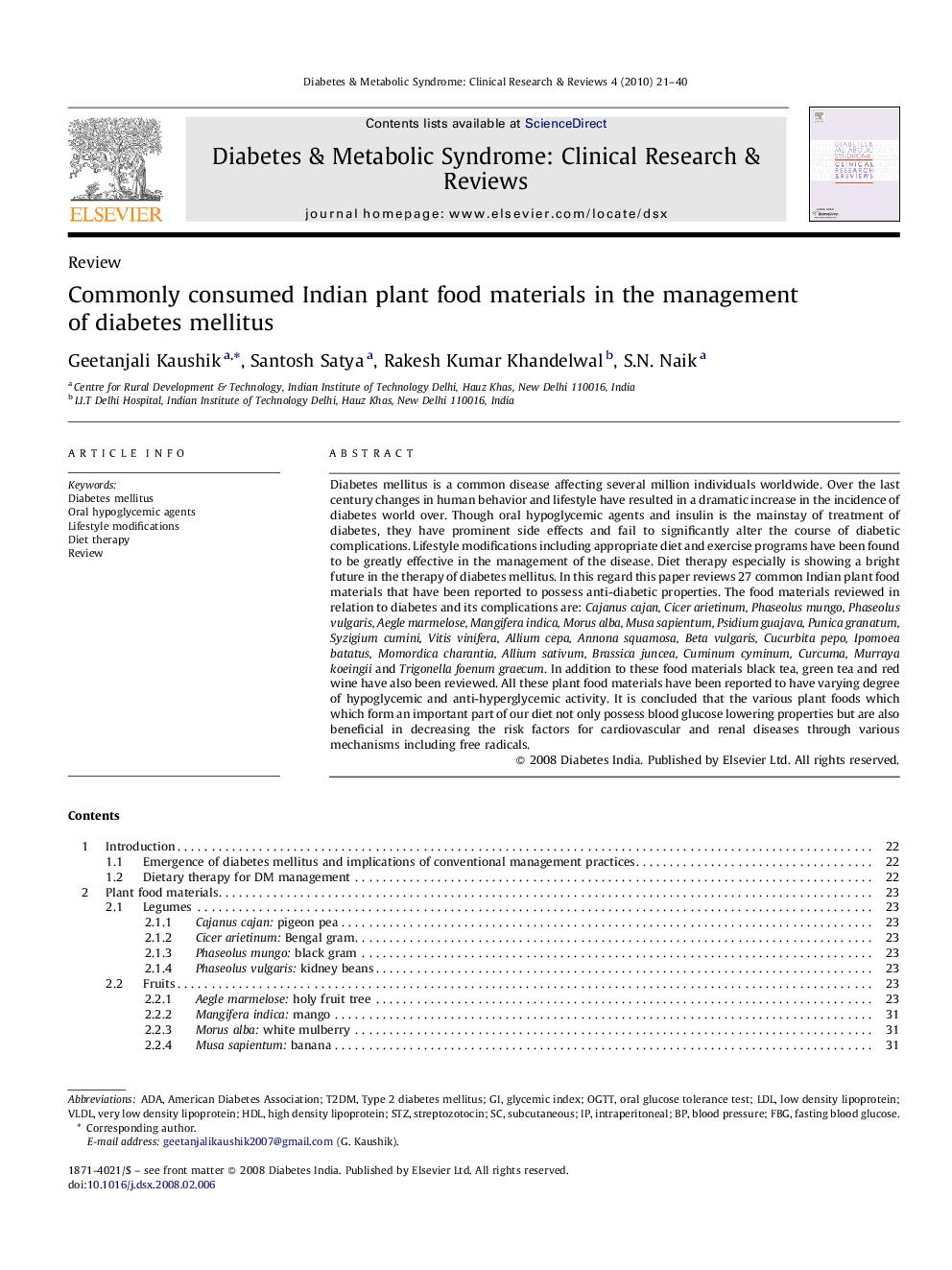| Article ID | Journal | Published Year | Pages | File Type |
|---|---|---|---|---|
| 2910242 | Diabetes & Metabolic Syndrome: Clinical Research & Reviews | 2010 | 20 Pages |
Diabetes mellitus is a common disease affecting several million individuals worldwide. Over the last century changes in human behavior and lifestyle have resulted in a dramatic increase in the incidence of diabetes world over. Though oral hypoglycemic agents and insulin is the mainstay of treatment of diabetes, they have prominent side effects and fail to significantly alter the course of diabetic complications. Lifestyle modifications including appropriate diet and exercise programs have been found to be greatly effective in the management of the disease. Diet therapy especially is showing a bright future in the therapy of diabetes mellitus. In this regard this paper reviews 27 common Indian plant food materials that have been reported to possess anti-diabetic properties. The food materials reviewed in relation to diabetes and its complications are: Cajanus cajan, Cicer arietinum, Phaseolus mungo, Phaseolus vulgaris, Aegle marmelose, Mangifera indica, Morus alba, Musa sapientum, Psidium guajava, Punica granatum, Syzigium cumini, Vitis vinifera, Allium cepa, Annona squamosa, Beta vulgaris, Cucurbita pepo, Ipomoea batatus, Momordica charantia, Allium sativum, Brassica juncea, Cuminum cyminum, Curcuma, Murraya koeingii and Trigonella foenum graecum. In addition to these food materials black tea, green tea and red wine have also been reviewed. All these plant food materials have been reported to have varying degree of hypoglycemic and anti-hyperglycemic activity. It is concluded that the various plant foods which which form an important part of our diet not only possess blood glucose lowering properties but are also beneficial in decreasing the risk factors for cardiovascular and renal diseases through various mechanisms including free radicals.
